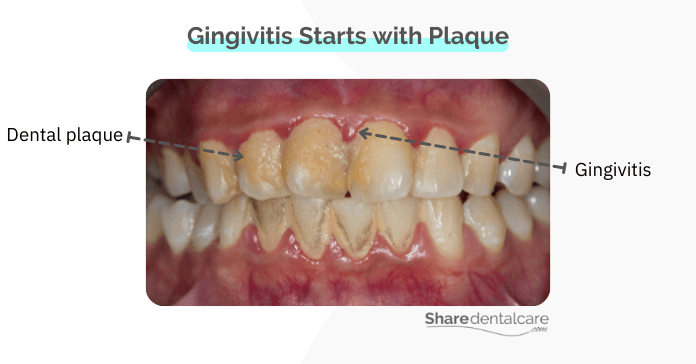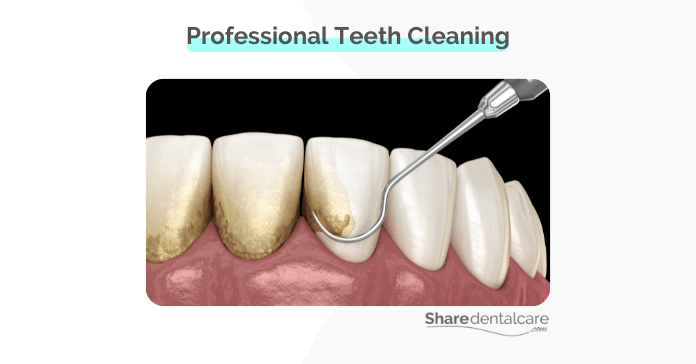Gingivitis is a bacterial infection of the gums that usually occurs due to poor oral hygiene and plaque buildup. Gingivitis is a mild form of gum disease that is typically characterized by swollen, red, and bleeding gums. Gingivitis can also be caused by other factors such as hormonal changes, stress, and certain medications.
Gingivitis is not a serious infection, and it can be easily treated with good oral hygiene habits. However, if gingivitis is left untreated, it can progress into periodontitis, which is an advanced form of gum disease. In this blog post, we will discuss how gingivitis infection occurs, its causes, and treatment options.
How Gingivitis Infection Occurs?
Gingivitis infection is the mildest form of gum disease. It occurs when plaque accumulates on your teeth. Dental plaque is a film of bacteria that accumulates on your teeth every day. These bacteria grow and produce toxins that cause inflammation of the gums. If the gingivitis is left untreated, the infection may spread to the tooth-supporting tissues, causing periodontitis.
Periodontitis is the advanced form of gum disease in which there is a progressive loss of bone around teeth. It can lead to tooth loss if left untreated. Gingivitis and periodontitis infections are linked to other serious health problems.

Signs & Symptoms of Gingivitis Infection
The signs and symptoms of gingivitis infection can vary depending on the person. Some people may not experience any symptoms at all, while others may have severe symptoms. The most common signs and symptoms of gingivitis are:
- Swollen and red gums.
- Gums that are tender or sore to touch.
- Bad breath despite maintaining good oral hygiene.
- The gums may start receding from the teeth or pulling away from them.
Causes & Risk Factors
There are several causes and risk factors for gingivitis infection. The most common cause is poor oral hygiene, which leads to plaque buildup on teeth. Plaque is a sticky film of bacteria that accumulates on your teeth every day, and these bacteria grow and produce toxins that cause inflammation of the gums. Other causes and risk factors for gingivitis include:
- Poor oral hygiene habits.
- Smoking or using tobacco products. Read more about gum disease from tobacco smoking.
- Dry mouth condition.
- Hormonal changes, such as those that occur during puberty, pregnancy (pregnancy gingivitis), and menopause.
- Certain medications, such as birth control pills and steroids.
- Systemic diseases such as diabetes and HIV/AIDS.
You should visit your dentist to identify the underlying cause and treat it to prevent any complications.
Is Gingivitis Infection Contagious?
Gingivitis is not contagious. However, gingivitis bacteria can transmit from one person to another through saliva or shared foods and drinks. You won’t get gingivitis as a result of being exposed to these bacteria only, but there are other factors to consider.
Poor oral hygiene habits such as failing to brush your teeth twice a day and not flossing properly can cause plaque buildup. This will increase the risk of bacteria growth that can cause gingivitis, as well as other forms of gum disease.
What Happens If Gingivitis is Left Untreated?
If gingivitis is left untreated, the infection will spread to the tooth-supporting tissues, causing periodontitis, an advanced form of gum disease. Periodontitis can lead to tooth loss if left untreated. Gum disease infection is linked to other serious health problems such as heart disease, stroke, and diabetes.
Treatment for Gingivitis Infection
The good news is that gingivitis infection is easy to treat with good oral hygiene habits and professional teeth cleaning. The treatment options for gingivitis include:
- Professional teeth cleaning: your dentist will remove plaque and bacteria above and below the gum line using instruments, an ultrasonic device, or a laser.
- Home care:
- Brush your teeth twice a day with a soft-bristled toothbrush and fluoride toothpaste.
- Floss your teeth at least once a day to remove plaque between teeth.
- Quit smoking or at least smoke in moderation.
- Drink plenty of water to keep your mouth moist.
- Use an antimicrobial mouth rinse to help reduce plaque.
- Visit your dentist every six months for checkups and professional teeth cleaning.
With proper treatment, gingivitis can be reversed. if the infection spread to the tooth-supporting tissues, causing periodontitis. In this case, treatment may include scaling & root planing, antibiotic therapy, and surgery in severe cases. Early diagnosis and treatment are important for preventing serious complications.

Is Gingivitis an Infection? – Conclusion
Gingivitis is a bacterial infection that usually occurs due to poor oral hygiene. It is a very common condition and can be easily treated with good oral hygiene habits and professional teeth cleaning. Gingivitis causes the gums to become swollen, red, and tender to touch. If left untreated, the infection may spread to the tooth-supporting tissues, causing periodontitis, which can lead to tooth loss.